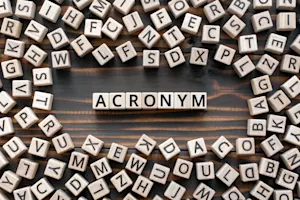What Makes This Word Tick
"Indissoluble" suggests something that cannot be dissolved or broken apart. A word with a certain gravitas, it implies an unbreakable bond or an unending commitment. It's the kind of word you might pull out when discussing lifelong friendships or the vows taken on a wedding day.
If Indissoluble Were a Person…
Picture an elderly couple who've been through thick and thin, yet still hold hands like teenagers. Indissoluble personified would be resilient, unyielding, and perhaps a little old fashioned, always reminding you that some things are meant to last.
How This Word Has Changed Over Time
Historically, "indissoluble" has held firm to its roots. While its core meaning of being impossible to dissolve has stayed consistent, its application has broadened. Once primarily scientific, it's now used in romantic, legal, and even philosophical contexts.
Old Sayings and Proverbs That Use Indissoluble
While "indissoluble" doesn't frequent old sayings directly, its essence is captured in the adage, "Blood is thicker than water," which speaks to the strength and permanence of certain relationships.
Surprising Facts About Indissoluble
Did you know? In ancient times, "indissoluble" was more commonly heard in discussions about alchemy and chemistry, relating to substances that could not be broken down. Today, it's more likely to describe relationships or agreements.
Out and About With This Word
You might hear "indissoluble" during a wedding ceremony or see it used in legal documents that talk about agreements meant to last forever. It's a word for the ages, often spoken with a nod to solemnity and endurance.
Pop Culture Moments Where Indissoluble Was Used
"Indissoluble" made its mark when describing the epic friendship in "Lord of the Rings." The Fellowship was bound by an indissoluble commitment to their quest, despite all odds.
The Word in Literature
In literature, "indissoluble" shows up in works dealing with themes of eternal love or the relentless passage of time. Authors like Shakespeare have dabbled with its themes, though you won't find the word directly in a sonnet.
Moments in History with Indissoluble
Moments like the signing of the Declaration of Independence could be described with "indissoluble." The founding fathers aimed for an unbreakable commitment to liberty and unity, much like how this word suggests permanence.
This Word Around the World
Around the globe, the idea of "indissoluble" can translate into various cultural symbols, such as the endless knot in Buddhist tradition, signifying continuity and interconnection that cannot be undone.
Where Does It Come From?
"Indissoluble" springs from Latin roots, with "in-" implying "not" and "dissolubilis" meaning "dissolvable." Its journey through Old French and Middle English has preserved its core meaning of permanence.
How People Misuse This Word
People sometimes use "indissoluble" when they simply mean "strong" or "durable," but it specifically refers to something that cannot be dissolved or undone, not just something sturdy.
Words It’s Often Confused With
Insoluble: Often mixed up because both suggest something that can't be dissolved, "insoluble" usually refers to difficulties or substances in liquids.
Eternal: While both imply an endless nature, "eternal" suggests time-based permanence, while "indissoluble" refers to the inability to separate.
Additional Synonyms and Antonyms
Synonyms for "indissoluble" include permanent, enduring, and unbreakable. Antonyms are temporary, dissoluble, and breakable.
Want to Try It Out in a Sentence?
"Their friendship was an indissoluble bond, forged in laughter and fortified by years of shared experiences."
















